
Question: Why was Michael killing people? There was no mention of his history, or what made him the way he was.
Answer: The movie doesn't require a back story, although subsequent sequels, and the Rob Zombie remake address your questions. Then again, what makes any serial killer kill? The topic has been studied by psychologists for decades. Often serial killers lead normal lives, at least in public.
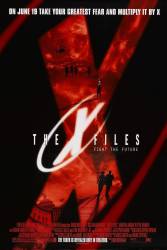
Question: If the "cold drink" vending machine was unplugged and the buttons were unresponsive, WHY did the saboteurs deliberately illuminate the front of the machine? Wouldn't this ATTRACT people to the machine, only to subsequently arouse curiosity when it failed to function (as it did with Mulder)? The more logical approach would be to disable the vending machine (including the illumination) and tape an "out of order" sign on it. People would then just ignore the machine, arousing no suspicion. The illuminated vending machine gimmick looks like an illogical contrivance to advance the plot.
Chosen answer: If they had put an "Out of Order" sign, or left it unilluminated, someone in charge might try to have it fixed or replaced, or could have checked to see if it's plugged in, etc. By leaving it illuminated, it doesn't look out of place and simply not taking money wouldn't arouse too much suspicion. In my own life, when I've come across a seemingly working vending machine that won't take my money or dispense drinks (but gives my money back), I just find another one instead of calling someone or reporting it. But yes, it is very convenient to the plot that Mulder just happens to try and use this particular machine.

Question: Is this film accurate to how rabid dogs behave in real life?
Answer: Not really. Rabies has a wide range of behavioural symptoms, and it's rare for a rabid dog to display what's called "furious rabies," whereby they become more aggressive. And even then, they wouldn't become single-mindedly determined to terrorise two people in a car. It's much more common for a rabid dog to get slower/lethargic as paralysis sets in, eventually leading to coma and death. You can find more info here: https://vcahospitals.com/know-your-pet/rabies-in-dogs.
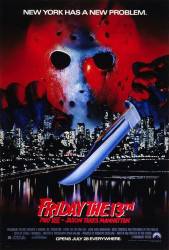
Question: Do the sewers of New York really fill up with toxic waste every night as stated in the movie, or was this just for the purpose of the plot?
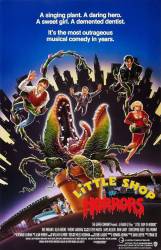
Question: Near the end of the song "I am a dentist", is Orin saying "and a success" or "and I say sit"?
Answer: He says "and a success". He's singing about his mother telling him he'd become a successful dentist.
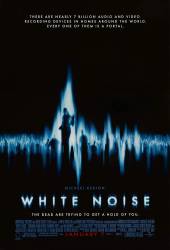
Question: I was really confused by the ending, who were the three figures we kept seeing, and what were they trying to do?
Answer: The figures are spirits who figured out how to contact the living, like Michael Keaton's wife. But where his wife wants him to help others, the three spirits are evil and want to only do bad things.
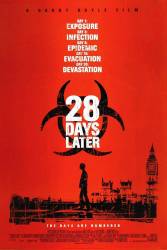
Question: At the end we are left with the question of the pilot's intentions, and what happened. Is he going to help them, or pull an about-face and machine-gun them down thinking they're infected?
Answer: That question is actually answered. The pilot is speaking Finnish, and he says into the radio "lähetätkö helikopterin" which translates as "Can you please send a helicopter?" Looks like he was actually helping them after all, and there is still some civilization (or at least people with radios and helicopters).

Question: How come there is not one alligator inside the lagoon? I mean it is Florida.
Answer: The lagoon was part of the theme park. Artificial with specific mammals inhabitants inside, warm and friendly.
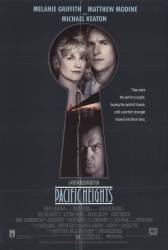
Question: Why was Carter deliberately causing enough commotion to drive the other tenants out?
Answer: If there are no other tenants, it means a loss of income for the owners. Carter, meanwhile was destroying the other apartment, making it useless to rent out. Patty and Drake need the income from both apartments that they are renting out in order to pay the monthly mortgage on their Victorian house.
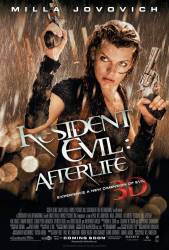
Question: How did the Executioner zombie get into the shower room? It couldn't have burrowed in like the other zombies because it is simply too big. The cast were standing by the entrance and the Executioner does not appear at the entrance.

Question: Towards the end of the film, Heather steals the Seal from inside of Leonard, and we see him burn up. But the shot goes noticeably out of focus when this happens. What gives? The scene appears to be CG, so it makes no sense for it to go so badly out of focus. Were they just trying to cover up a dodgy effect?
Answer: I believe your theory is correct, it appears to go out of focus to help cover up some unconvincing CGI. The final explosion looks very cartoonish.

Question: Do we know if Peyton's husband was really molesting his patients? I can't tell if he killed himself out of guilt, or because he was depressed that he had been accused of something like that.
Answer: Yes, Dr. Mott was molesting his patients, as was seen when he slipped off his plastic glove just before performing a pelvic exam on Claire. After Claire reported Mott to the authorities, a number of other women came forward and their accusations were made public. Mott never showed any remorse, and it appears he committed suicide because he was unable to face the ensuing scandal and criminal investigation.
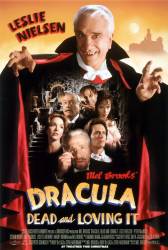
Question: The credits and IMDb claim that clips from the movies The Premature Burial (1962) and Mutiny on the Bounty (1962) are used in the film. Where are these clips?
Answer: A clip from Mutiny on the Bounty is used in the ship scene. I believe it's on deck before Renfield and Dracula are seen. The premature burial is the scene when Lucy's coffin is being carried on the moors.

Question: When Eddie takes a face full of projectile sludge from the leper, is there any significance to the song "Angel of the Morning" playing, or was it just a random attempt at a joke?
Answer: I think it's more of an attempt at a silly joke, juxtaposing the insane imagery with a tender song. But I've also seen the suggestion that it was an Easter Egg/reference to the book "The Langoliers," in which the song is mentioned. (And given the "It" films have some general Stephen King Easter Eggs referencing things from his other books, that makes sense).

Question: How did it end, because I missed that part in the movie. Does Sarah die or did her sister die in the forest?
Answer: Sara spends much of the convoluted ending of this film in the midst of vivid hallucinations. Eventually, Sara dies, accidentally, at her own hands. She cuts her own wrists during a delusion where she believes she is cutting away the grasping fingers of her father's ghost. As she is dying, her body is dragged under the forest floor by Japanese "yurei." (ghosts). Her spirit remains to haunt the forest, lunging at Michi, the search party's forest guide, in the final frames of the film. Meanwhile her sister, Jess, has been rescued alive.
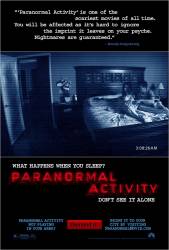
Question: Can someone tell me if I'm interpreting this correctly? When Katie changes her mind about fleeing the house and is found clutching a cross with blood on her hand and leg, Micah takes it and burns it, after which she becomes possessed. Was she successfully warding off the demon with the cross and clutching it so desperately that it made her hand bleed, and then Micah wrongly thought it was being used to attack her and inadvertently made her possession a done deal by burning it?
Answer: The screenwriter confirms in the commentary that burning the cross and picture was a mistake because it was the last defence they had.

Question: If Alice can see the future, why did she not protect Bella from Jasper's attack before it happened at Bella's birthday party?
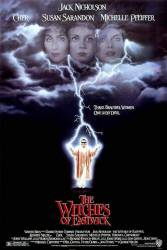
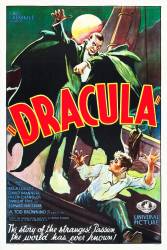
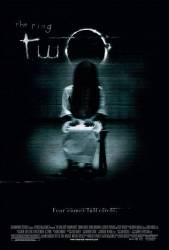
Answer: The only answer given in this film is that Myers is purely and simply evil. He's just doing it because he's compelled to, and doesn't seem to have any trace of humanity left inside of him. Future sequels attempted to give an explanation, but to varying degrees of success. But as far as this original film is concerned - he's just pure evil.
TedStixon